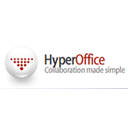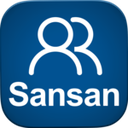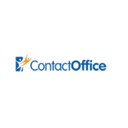Contact Management software: purchase guide
The Complete Guide to Contact Management Software for 2025
In today’s fast-paced business environment, managing customer interactions and relationships efficiently is no longer a luxury—it’s a necessity. With the increasing reliance on digital tools, companies need robust systems that can organize and streamline customer information. That’s where Contact Management Software comes into play.
This software centralizes all customer and lead data, enabling businesses to track interactions, optimize workflows, and improve communication across sales, marketing, and support teams. Whether you are a small startup, a growing mid-sized company, or a large enterprise, contact management software can significantly enhance your ability to manage customer relationships effectively.
From capturing and storing contact details to automating follow-ups and ensuring data compliance, these solutions make it easier for businesses to stay on top of their customer interactions. And with 2025 marking a turning point in how we use AI, cloud-based platforms, and integration capabilities, adopting the right contact management software is more crucial than ever for staying competitive.
In this guide, we’ll explore how these systems work, their key features, the best tools available today, and how to choose the right one for your business needs. Ready to take control of your customer relationships and streamline your operations? Let’s dive in!
How Contact Management Software Works
Contact management software centralizes and organizes all customer and lead information in one place. This allows businesses to manage relationships across sales, marketing, and customer service departments more efficiently. The primary function is to provide a unified platform for tracking customer interactions and optimizing communication across multiple touchpoints.
Here’s a breakdown of how it works:
Centralized Data Storage Contact management software creates a central hub where all customer details are stored, including contact information, purchase history, communication preferences, and engagement history. This centralized data ensures that teams have access to a complete, up-to-date profile of each customer, improving decision-making and customer interactions.
Automated Data Entry Modern systems reduce manual entry by automating much of the process. For example, contact details can be automatically imported from emails, web forms, or social media platforms. Automation eliminates errors, saves time, and ensures that customer information is consistently up-to-date.
Integration with CRM and Communication Tools The best contact management systems seamlessly integrate with existing CRM (Customer Relationship Management) software, email marketing platforms, and communication tools like phone systems, live chat, and email. This integration allows teams to work with synchronized data and respond to customer needs in real-time.
AI-Powered Search AI-powered search functionality allows team members to quickly retrieve relevant customer data, including interaction history, purchase preferences, and important notes. Predictive search capabilities make it even easier to find what’s needed, without having to sort through mountains of data manually.
Automated Reminders & Notifications To ensure timely follow-ups and communications, many systems include automated reminders. Whether for scheduled calls, meetings, or follow-up emails, reminders help keep your team on track. Additionally, real-time notifications alert team members about any important updates or interactions that require immediate attention.
Collaboration Features Modern contact management software often includes collaboration features that allow team members to share customer information, updates, and notes across departments. This collaborative approach ensures that all team members—from sales to support—have the same understanding of a customer’s needs and history.
Reporting and Analytics Robust reporting features track key performance indicators (KPIs), such as response times, conversion rates, and customer satisfaction. Reports help businesses evaluate the effectiveness of their interactions, spot opportunities for improvement, and adjust strategies accordingly.
Comparing the Best Contact Management Software for 2025
When choosing the right contact management software, it’s important to compare options based on key features, pricing, and the specific needs of your business. Below is a comparison of some of the best contact management software available in 2025.
| Software |
Best For |
Key Features |
Pros |
Cons |
Pricing & Implementation |
| Squaretalk |
All-in-one solution for contact centers |
CRM integration, omnichannel support, advanced reporting |
Highly customizable, great for teams looking for flexibility |
Requires onboarding for advanced features |
Free plan available, paid plans start at $15/month |
| Genesys |
Enterprises needing personalized customer support |
AI-powered analytics, real-time data integration |
Excellent AI-driven insights, great for personalization |
Pricing not transparent, complex setup |
Free trial, pricing available upon request |
| PieSync |
Businesses seeking seamless data synchronization |
Real-time syncing, easy integrations with popular CRMs |
Simple to use, great for sync automation |
Limited free-tier features, basic functionality |
Free trial, pricing available upon request |
| Shared Contacts for Gmail® |
Small businesses using Gmail |
Contact sharing and syncing with Gmail |
Perfect for businesses using Google ecosystem |
Limited integration outside Google services |
Free trial, pricing available upon request |
| ViaContact |
Businesses looking for a cloud-based CRM |
Simple UI, 100% cloud-based solution |
Great user experience, easy to set up |
No advanced CRM features |
Free trial, pricing available upon request |
| CleanCRM |
Small businesses needing an easy-to-use CRM |
Easy setup, no frills, just basic CRM functionality |
Great for small teams, quick implementation |
Fewer customization options |
Free trial, pricing available upon request |
| Covve |
Teams needing next-gen contact management |
AI-enhanced contact organization |
AI-powered smart contacts, automated engagement |
Paid plans required for full access |
Free version available, paid plans start at $9.99/month |
Key Takeaways:
Best for Personalization and AI Insights: Genesys is a great choice for enterprises looking for powerful AI-driven analytics and advanced personalization capabilities.
Best for Seamless Data Syncing: PieSync is ideal for businesses that need automatic syncing across multiple platforms with popular CRM systems.
Best for Google Ecosystem Users: Shared Contacts for Gmail® offers an excellent option for small businesses already using Gmail and the Google ecosystem.
Best for Simple CRM Needs: CleanCRM is a straightforward, no-frills CRM solution, perfect for small businesses that need basic contact management functionality.
Best for Cloud-Based Solutions: ViaContact offers a fully cloud-based contact management solution, making it easy to manage contacts on the go, with a simple and intuitive user interface.
Key Features of Contact Management Software in 2025
In 2025, contact management software has evolved to offer more advanced and integrated functionalities. Businesses are looking for software that can centralize their customer data, automate routine tasks, and offer insights that improve customer engagement and sales efficiency. Here are the key features to consider when choosing the best contact management solution for your business:
1. Advanced Contact Storage
In 2025, businesses need a contact management system that can efficiently store and organize vast amounts of customer and lead data. Key features include:
Unlimited Database Capacity: No more worrying about storage limits—your software should handle as many contacts as you need, from prospects to long-term clients.
Categorization & Segmentation: This allows businesses to group contacts based on categories like location, industry, behavior, or engagement level, making it easier to target the right people at the right time.
2. Real-Time Data Syncing
As businesses grow, having up-to-date information across platforms is crucial. Real-time syncing allows for:
3. AI-Powered Search
The volume of data that businesses handle can be overwhelming. AI-powered search functionality helps by:
Predictive Search: AI suggests relevant contacts and information based on search patterns and past behaviors.
Quick Access to Details: Allows businesses to locate customer information instantly, improving response times and efficiency.
4. Automated Reminders & Follow-Ups
Follow-ups are crucial in managing customer relationships. Features to look for include:
Automated Alerts: Set reminders for meetings, calls, and follow-up actions to keep your team on track.
Task Automation: Allows for the automatic scheduling of follow-ups, reducing human error and ensuring timely responses.
5. Seamless CRM & Email Integration
Integration with other tools is key for efficient workflow. Look for software that can:
Sync with CRMs: Ensure your contact management software integrates with your existing CRM systems.
Email Integration: Capture and manage email interactions with customers, allowing for a seamless transition between email communication and other contact management features.
6. Secure Data Storage & Compliance
With data privacy being a top priority in 2025, choose software that ensures:
Conclusion: Why Contact Management Software is Essential in 2025
As businesses adapt to an increasingly digital world, contact management software has become a necessity for maintaining and improving customer relationships. By centralizing all customer data in one place, these tools provide businesses with the ability to streamline their processes, enhance communication, and drive growth.
In 2025, with the rise of AI, real-time syncing, and automated features, contact management software is a critical tool for companies of all sizes. Whether you're a small startup, an established mid-sized business, or a large enterprise, the software helps you scale efficiently, engage with customers seamlessly, and track interactions across multiple channels.
The integration capabilities, ease of use, and security features are what make these platforms so indispensable. While free solutions offer basic functionalities, investing in a premium plan ensures you access advanced tools, empowering you to boost productivity, collaboration, and overall business efficiency.
If you're still managing customer data manually or using multiple disjointed tools, it's time to rethink your strategy. With the right contact management software, you can build stronger relationships, improve your processes, and drive revenue growth—all from one centralized platform.
In today’s competitive landscape, contact management software isn’t just a luxury—it's a vital asset for companies looking to thrive in the digital age.










